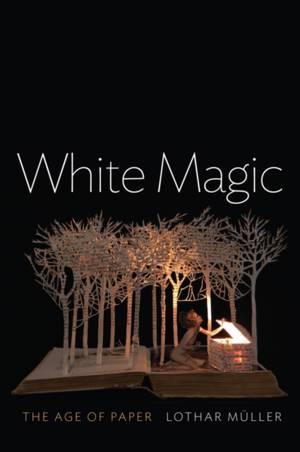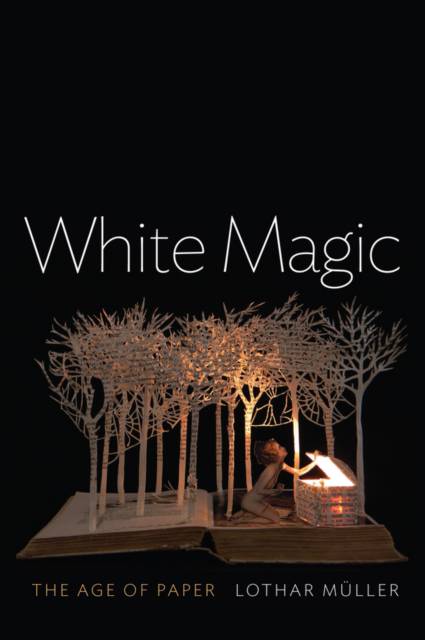
- Retrait gratuit dans votre magasin Club
- 7.000.000 titres dans notre catalogue
- Payer en toute sécurité
- Toujours un magasin près de chez vous
- Retrait gratuit dans votre magasin Club
- 7.000.000 titres dans notre catalogue
- Payer en toute sécurité
- Toujours un magasin près de chez vous
Description
Paper is older than the printing press, and even in its unprinted state it was the great network medium behind the emergence of modern civilization. In the shape of bills, banknotes and accounting books it was indispensible to the economy. As forms and files it was essential to bureaucracy. As letters it became the setting for the invention of the modern soul, and as newsprint it became a stage for politics.
In this brilliant new book Lothar Müller describes how paper made its way from China through the Arab world to Europe, where it permeated everyday life in a variety of formats from the thirteenth century onwards, and how the paper technology revolution of the nineteenth century paved the way for the creation of the modern daily press. His key witnesses are the works of Rabelais and Grimmelshausen, Balzac and Herman Melville, James Joyce and Paul Valéry.
Müller writes not only about books, however: he also writes about pamphlets, playing cards, papercutting and legal pads. We think we understand the ?Gutenberg era?, but we can understand it better when we explore the world that underpinned it: the paper age.
Today, with the proliferation of digital devices, paper may seem to be a residue of the past, but Müller shows that the humble technology of paper is in many ways the most fundamental medium of the modern world.
In this brilliant new book Lothar Müller describes how paper made its way from China through the Arab world to Europe, where it permeated everyday life in a variety of formats from the thirteenth century onwards, and how the paper technology revolution of the nineteenth century paved the way for the creation of the modern daily press. His key witnesses are the works of Rabelais and Grimmelshausen, Balzac and Herman Melville, James Joyce and Paul Valéry.
Müller writes not only about books, however: he also writes about pamphlets, playing cards, papercutting and legal pads. We think we understand the ?Gutenberg era?, but we can understand it better when we explore the world that underpinned it: the paper age.
Today, with the proliferation of digital devices, paper may seem to be a residue of the past, but Müller shows that the humble technology of paper is in many ways the most fundamental medium of the modern world.
Spécifications
Parties prenantes
- Auteur(s) :
- Editeur:
Contenu
- Nombre de pages :
- 328
- Langue:
- Anglais
Caractéristiques
- EAN:
- 9780745672540
- Date de parution :
- 28-03-16
- Format:
- Livre broché
- Format numérique:
- Trade paperback (VS)
- Dimensions :
- 150 mm x 226 mm
- Poids :
- 498 g







